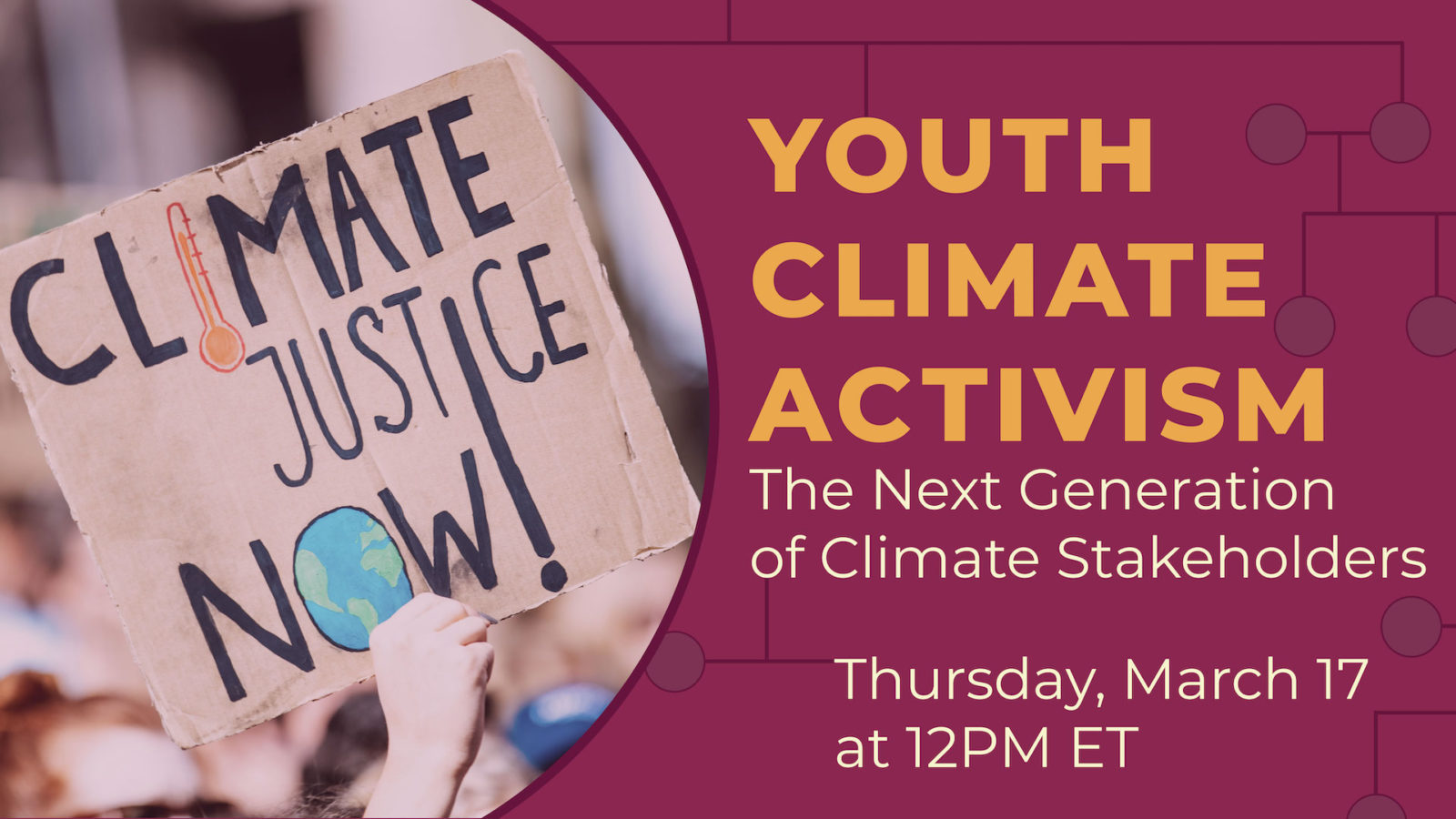While the landscape of climate activism is always changing, recent years have seen a major influx of new voices into the climate movement – and they are much younger than what mainstream environmentalism is used to. Youth climate activism has encouraged major shifts in the climate policy discussion towards a more diverse, intersectional, and holistic approach to fighting climate change. Understanding the concerns identified by youth activists, as well as their proposed solutions and pathways, is essential for all climate policy stakeholders hoping to shape truly innovative and inclusive policies.
To facilitate this important conversation, Climate XChange is elevating the perspectives of three youth activists in our March webinar. Shiv Soin, Executive Director at TREEage, Aaditi Lele from Change the Chamber, and Lyla Choi, Policy Analyst at Zero Hour, will join us to discuss lessons, challenges, and opportunities for climate policy from the perspective of youth activists.


